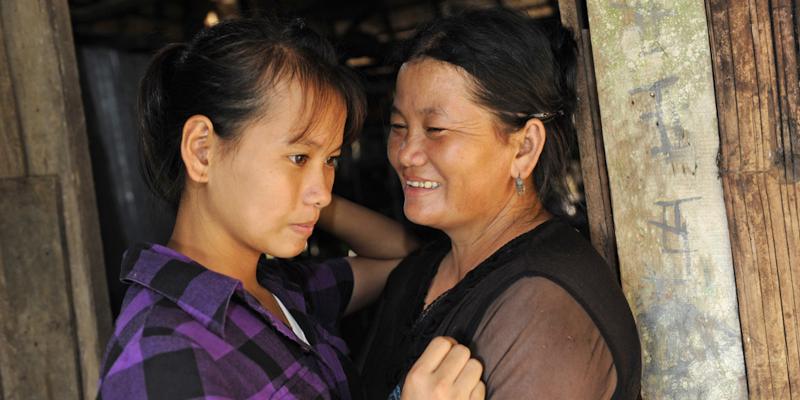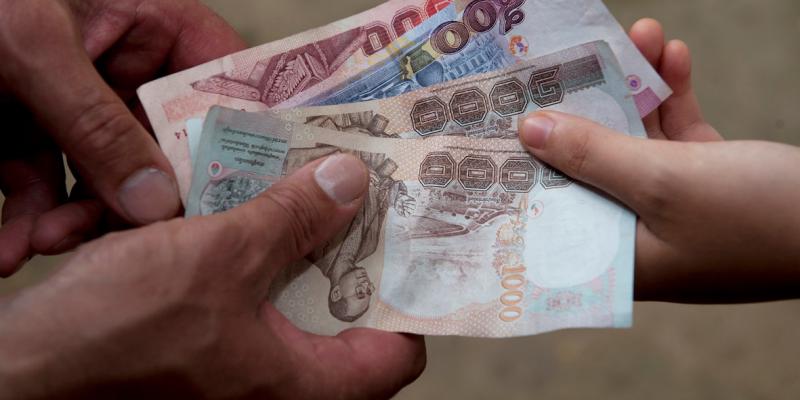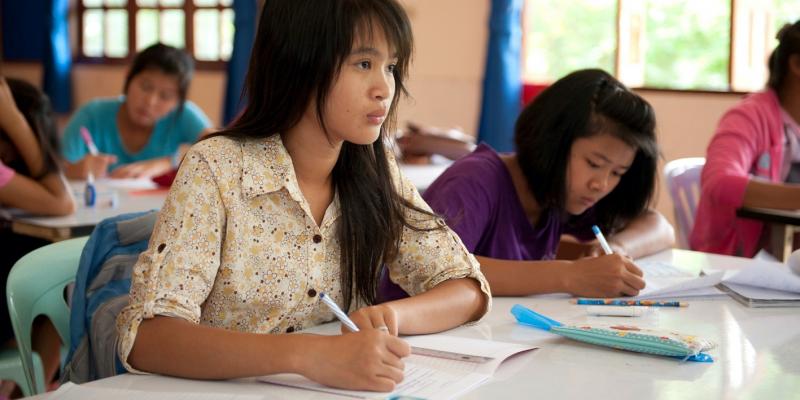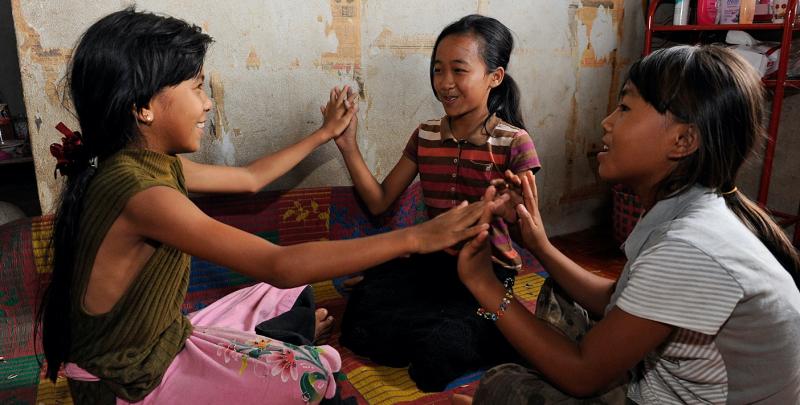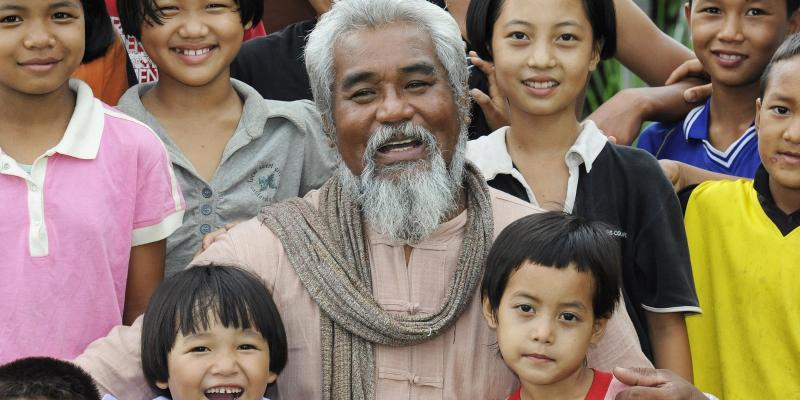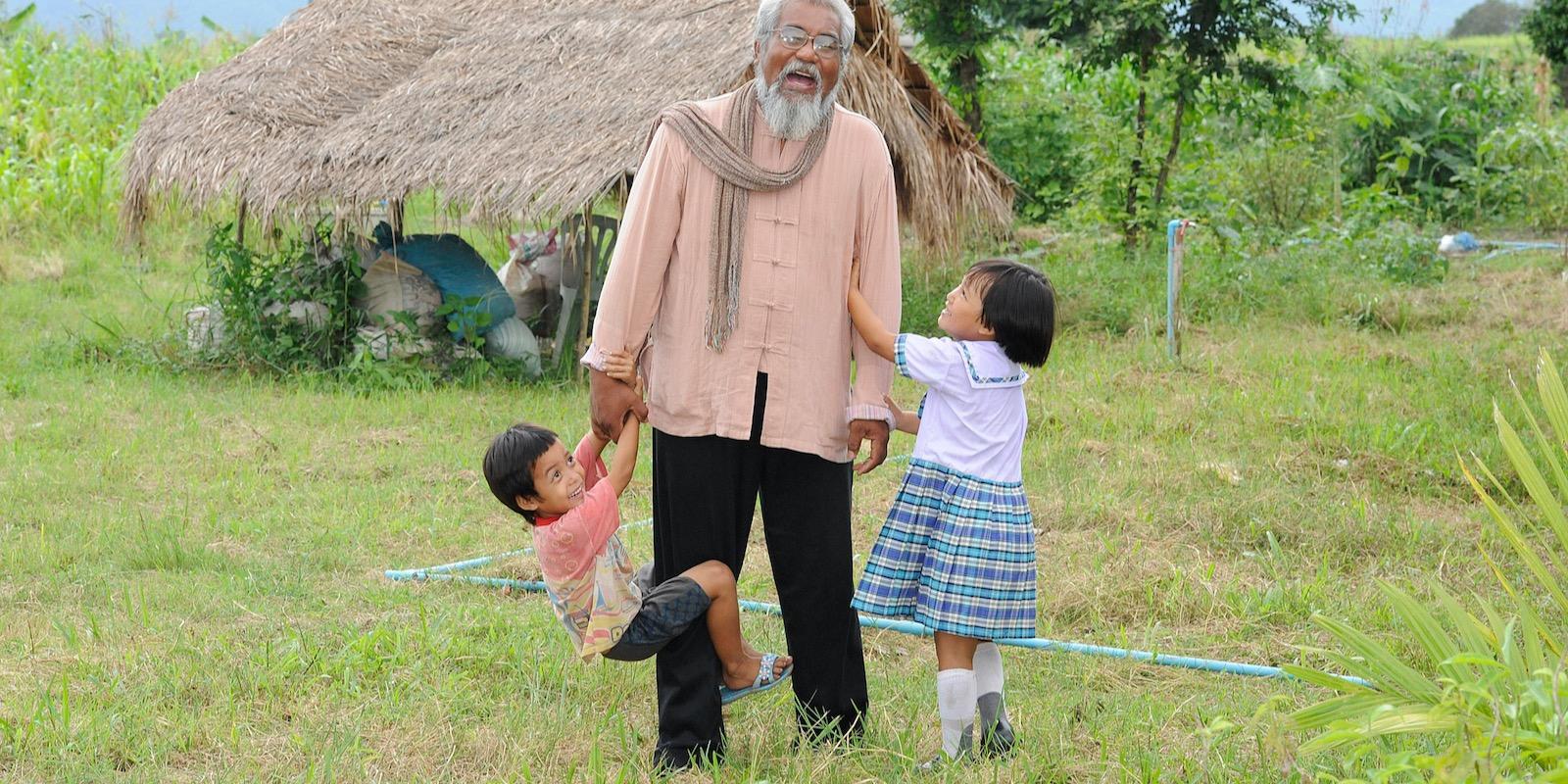
Sompop Jantraka grew up in a poor family in southern Thailand and had to work to survive from the age of six. He would dig ditches and wells, mine for minerals and gather rubbish and bottles on the street to make money for food and school fees.
That’s why it came naturally to Sompop to begin fighting for children’s rights to go to school and against the human trafficking that affects tens of thousands of children in South East Asia every year.
While studying at university, Sompop works as an adventure guide for foreign tourists who want to walk in the mountains and jungles of northern Thailand. Some of the tourists work for organisations that fight for the rights of the child and against child labour. Sompop learns a lot from them.
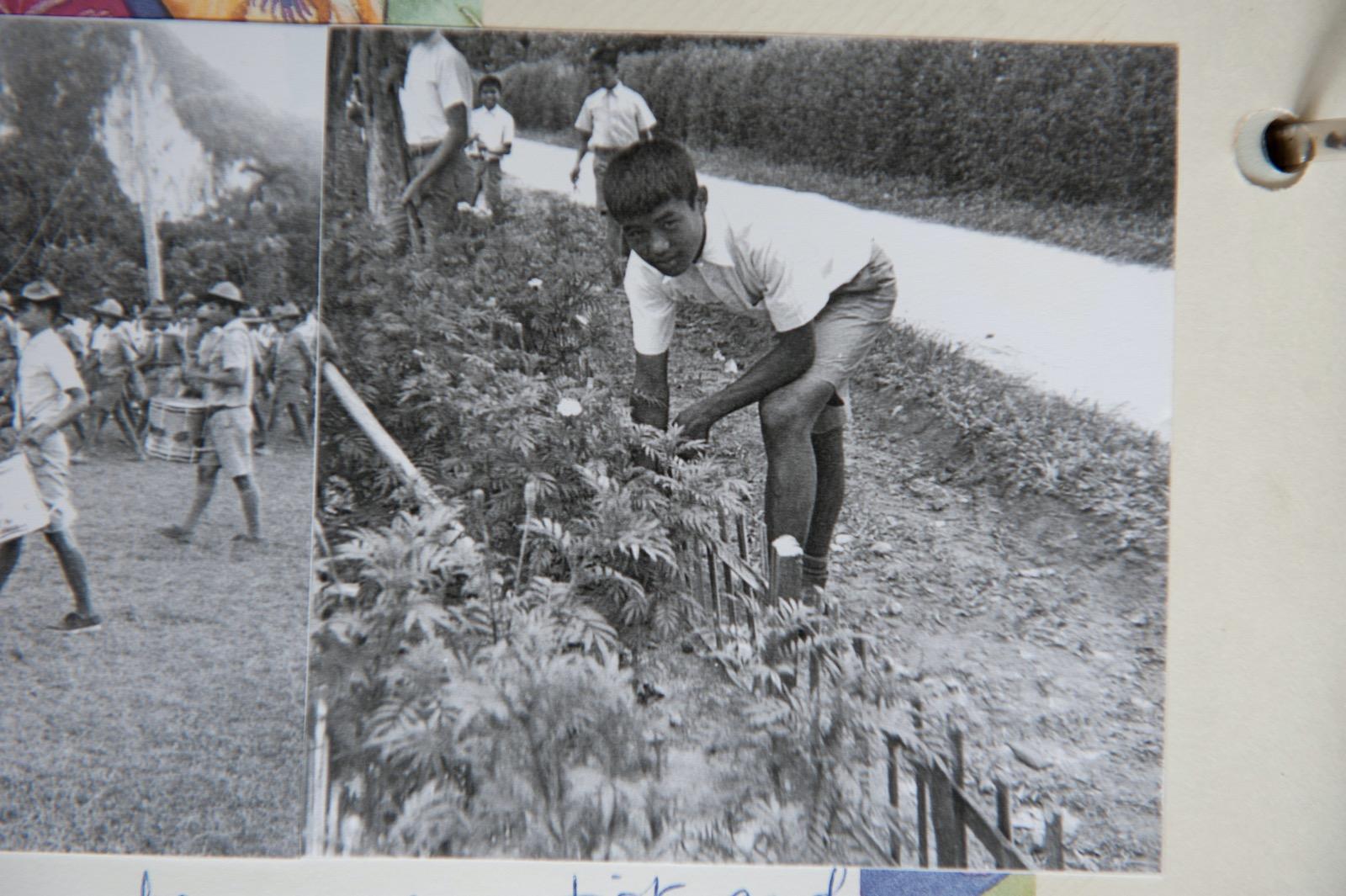
Sompop worked all the way through school, doing anything from garbage removal to weeding to building dog kennels for his teachers.
Gangs sell children
Sompop travels north to the Golden Triangle, a dangerous area where the mountainous regions of Thailand, Vietnam, Burma and Laos meet. Criminal gangs have been selling drugs and weapons in this area for almost a hundred years. These gangs have now started buying and selling children and women too. The centre of the trafficking industry in this area is in the small town of Mae Sai, by the border with Burma.
When Sompop comes here for the first time, in 1989, there are almost 60 brothels in this small town. The girls there are abused and made ready to live their lives as brothel slaves. They are told never to say where they come from, or their real age. They are given fake ID documents and sold to tourist resorts in Thailand and countries like Malaysia, Japan and Singapore.
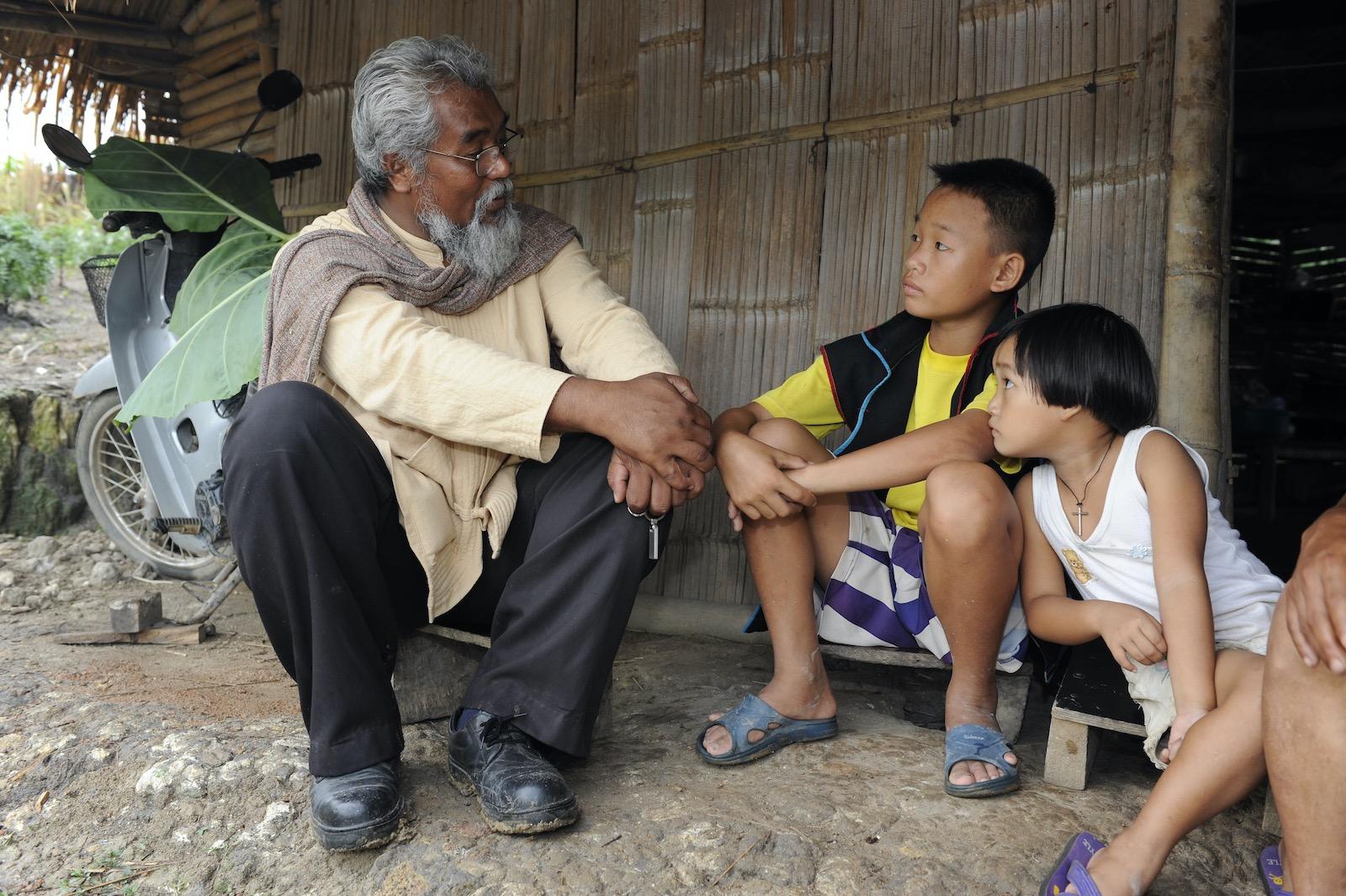
Sompop visits families and speaks to the children and parents about the dangers of trafficking.
Many earn money through the girls
Sompop starts travelling around the hill tribe villages. Wherever he goes he meets people who earn money through trafficking. Some parents sell their own daughters. Some believe that the girls are going to work at hotels or restaurants while others may know that they will end up in the sex industry. Most villages have hardly any girls left over the age of 13.
“What are you doing?!” says Sompop to the villagers in dismay. “Don’t you have any children who want to go to school?”
The villagers laugh at Sompop. They think it’s good that the children go away to work.
“Nobody cares, or takes this problem seriously,” thinks Sompop. “People think they’re ‘only children’. But I’m going to save as many girls as I can. And the only way to do that is to get hold of them before they are sold to the traffickers. After that it’s too late.”
Text: Carmilla Floyd
Photo: Kim Naylor
Långgatan 13, 647 30, Mariefred, Sweden
Phone: +46-159-129 00 • info@worldschildrensprize.org
© 2020 World’s Children’s Prize Foundation. All rights reserved. WORLD'S CHILDREN'S PRIZE®, the Foundation's logo, WORLD'S CHILDREN'S PRIZE FOR THE RIGHTS OF THE CHILD®, WORLD'S CHILDREN'S PARLIAMENT®, WORLD'S CHILDREN'S OMBUDSMAN®, WORLD'S CHILDREN'S PRESS CONFERENCE® and YOU ME EQUAL RIGHTS are service marks of the Foundation.



